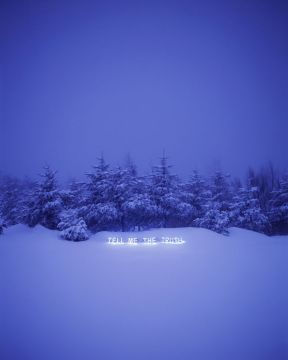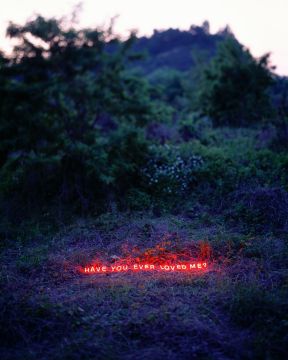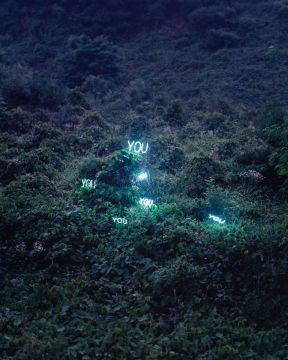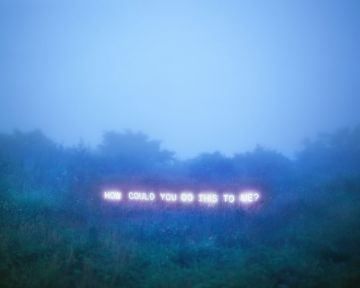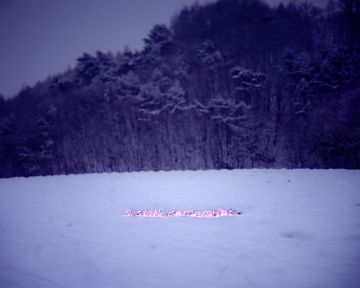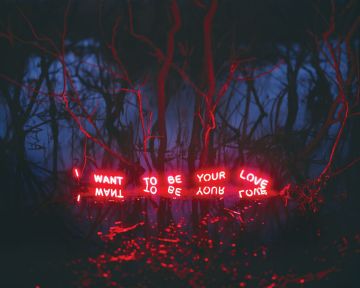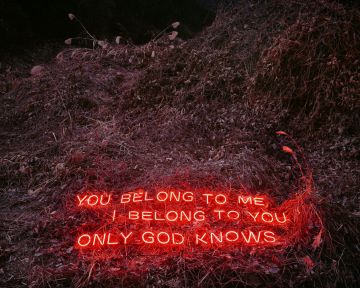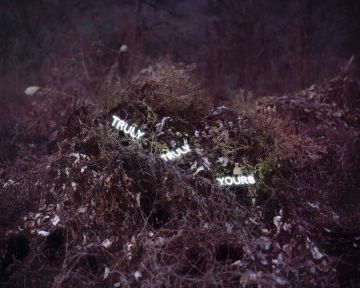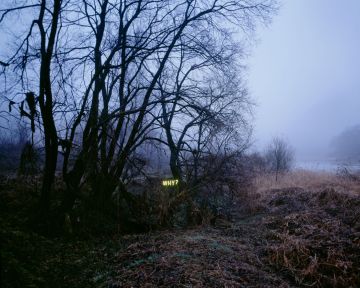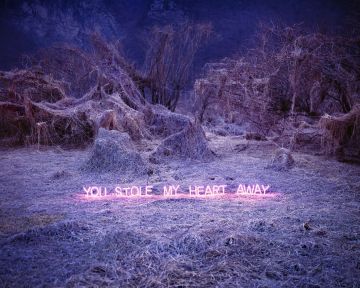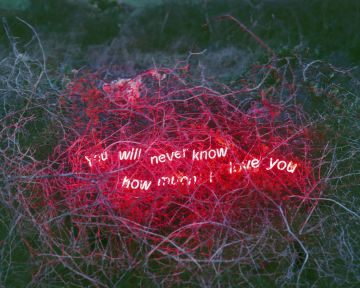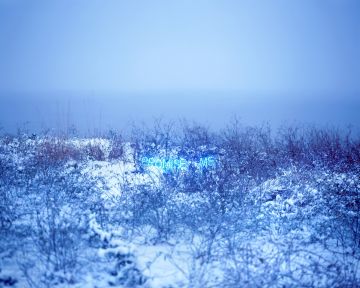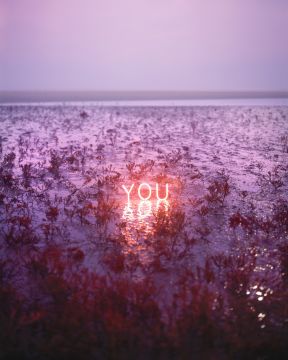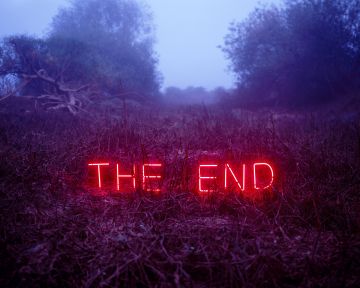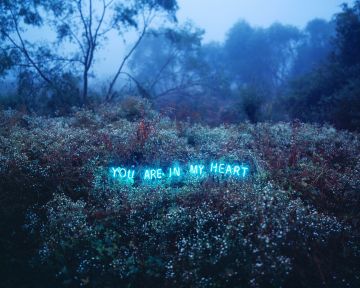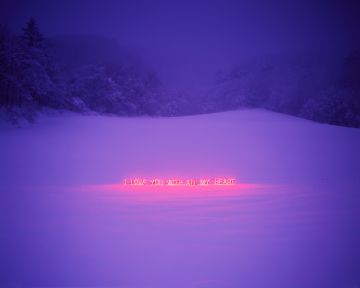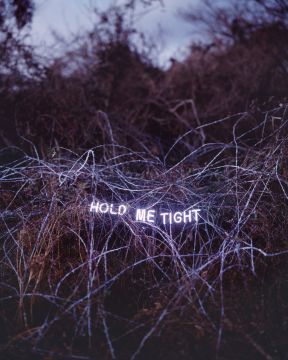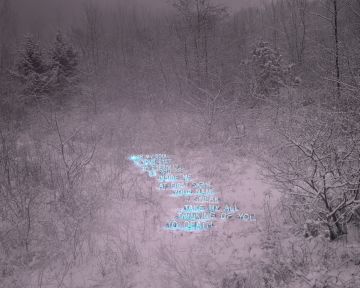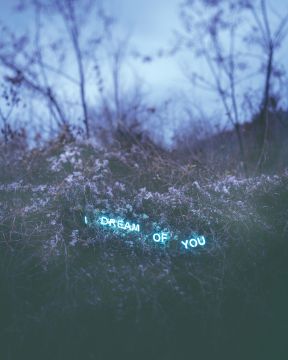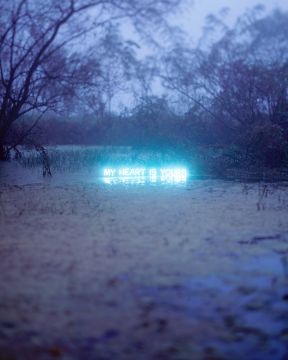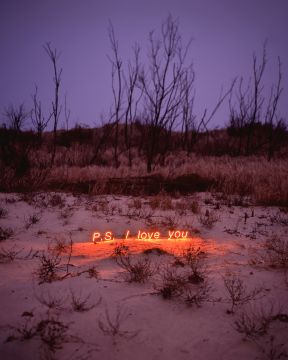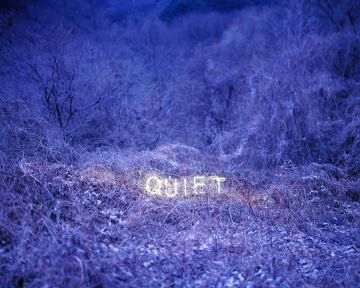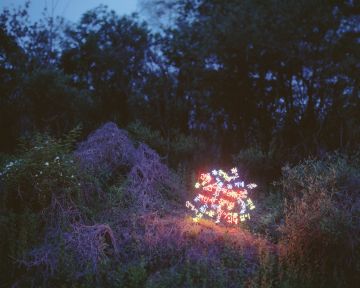Aporia
'Aporia' means 'coming to a dead end' in Greek. The cry for love faintly spreading across the desolate places indicates the dead end of 'love' that cannot be solved with logic and philosophy. Jung Lee expects viewers to have a short but impressive trip daydreaming of their own love stories through this combination of neon, landscape and text.
The series 'Aporia' takes its motif from 'A Lover's Discourse' by Roland Barthes. In this essay, Barthes discusses the dilemma experienced by people who fall in love. If you fall in love, your beloved becomes a sort of mystery so that you will ceaselessly try to figure out the reasons for your feelings for him or her and to interpret them. The desire to express your love produces lies and conflicts and leads to a dead end that is a love. As you endlessly consume the trite words of love, the object of your affection will eventually become the love itself instead of love. The sweet nothings being reiterated in the air, unable to reach anyone between you and me, seem to ironically reveal the solitude and sorrow of people in contemporary society.
Jung Lee began imaging the emptiness and lonesomeness behind the glowing neon signs of the city. And she started collecting the expressions of love and hatred that can be commonly found on the internet, TV or movies. What would happen if you took those common phrases into unknown deserted places? She created text with neon and placed them in this type of landscape. These hackneyed and banal phrases meet the deserted places – ushering you into a beautifully sparking moment.
